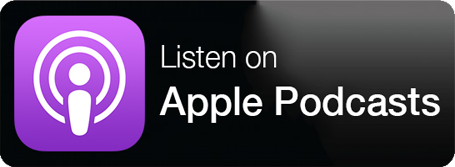In this week’s episode of People Places Planet Podcast, host Sarah Backer sits down with Dr. Marshall Shepherd, ELI’s 2023 Environmental Achievement Award recipient and renowned scientist, to have a conversation in celebration of his work. They discuss Shepherd’s background, inspirations, and views on solutions for the climate crisis. He delves into topics like climate delayism and the need for a “climate moonshot,” providing a self-proclaimed “Weather Geek” perspective into extreme weather events, environmental justice issues, and other important climate issues facing our communities today.
People Places Planet
Welcome to People Places Planet, ELI's leading environmental podcast. We talk to leading experts across sectors who share their solutions to the world's most pressing environmental problems. Tune in for the latest environmental law, policy, and governance developments.
Don't see your favorite app? Subscribe and Listen
In this week’s episode of the People Places Planet podcast, Harvard Law Professor Cass Sunstein engages in an illuminating discussion with Vanderbilt Professor W. Kip Viscusi about the social cost of carbon—a hotly debated and frequently litigated number—that is used to quantify the harm caused by one ton of carbon emissions. They are joined by ELI Senior Attorney Linda K. Breggin and Vanderbilt Law student Kyle Blasinsky. This important number is used in developing a range of regulations and soon will be used in federal budgeting and purchasing decisions, as well as National Environmental Policy Act reviews, under a new Biden Executive Order. Professor Sunstein, an Obama Administration Office of Information and Regulatory Affairs Administrator, discusses the key judgement calls that must be made in developing the social cost of carbon, such as the appropriate discount rate and approaches to incorporating equity, and offers his views on developing a number that can withstand arbitrariness review in any renewed effort to challenge the number in court.
Professor Sunstein’s related article Arbitrariness Review and Climate Change was selected for inclusion in this year’s Environmental Law and Policy Annual Review, which recognizes scholarship that presents creative and feasible legal and policy solutions to pressing environmental problems. ELPAR is published annually by the ELI’s Environmental Law Reporter in collaboration with the Vanderbilt University Law School.
In this week’s episode of People Places Planet Podcast, ELI’s three summer interns (Anna Guzman, Natalie Triana, and Alex Alvarez) sit down with host Sarah Backer to reflect on their experience as summer interns, share who they are, their interests, and what brought them to ELI. They delve into their independent research projects, which cover substantive due process claims in climate litigation, climate migration issues in the Caribbean, and community gardening in California.
In this week’s 'court watch' episode of the People, Places, and Planet podcast, Host Sarah Backer and guests ELI Staff Attorney Jarryd Page and Science Fellow John Doherty, dive into how the youth-led constitutional climate case of Held v. State of Montana incorporated climate science and the implications that Judge Kathy Seeley’s decision might have for future climate litigation. Jarryd and John both work for ELI’s Climate Judiciary Project (CJP). CJP collaborates with leading national judicial education institutions to provide neutral, objective information to the judiciary about climate science and how it interacts with the law.
You can read the accompanying blog here, which includes more analysis and direct quotes from the Held decision.
Georgia Ray joined ELI as a Research Associate in August 2021 and has been the Host of People, Places, and Planet for the past year. At ELI, Georgia also worked on projects related to best practices for sustainable land-based aquaculture, wetlands for hazard mitigations, green technology, and the digital economy and the environment. In this episode, join our new podcast host, Sarah Backer, as she learns more about Georgia’s environmental interests and her favorite People, Places, Planet podcast episodes, while gaining insight into the behind-the-scenes podcast production process.
In this week's episode of the People Places Planet Podcast, host Georgia Ray dives deep into an incredible transformation journey with her guests Debbie Sims, Suzi Ruhl, David Cash, and Bill Coleman. Together, they discuss the evolution of Bridgeport, Connecticut's once-neglected Mount Trashmore into the thriving Mount Growmore agricultural, wellness, and learning campus. Tune in to explore the significance of community-driven solutions, the power of inter-sectoral government collaboration, the importance of trusted relationships with academia, and the essential steps that other communities can take to replicate such transformative projects. This episode promises a compelling narrative of turning environmental challenges into community triumphs.
Referenced materials can be found on our accompanying blog here.


